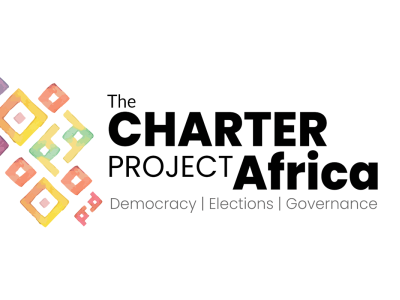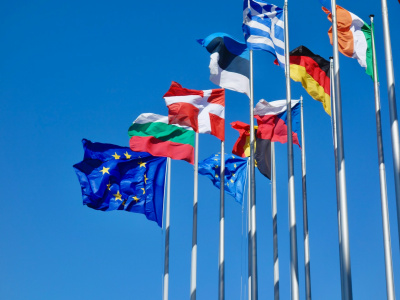Dear members of the new European Parliament,
When writing to Europe from Germany, the first thing that comes to mind is the many benefits that German society and economy gain from being part of the European Union. We benefit from producing within the single market, from the many European workers and academics in Germany, and the EU’s global trade policies as much as European cooperation on foreign policy. We enjoy the riches of European cultures and the freedom of movement from the Nordic forests to the Mediterranean islands, from the Carpathian Mountains to the Atlantic shores. Most Germans understand that these advantages do not come for free. With more than 60 percent the turnout in Germany was the highest at European elections since 30 years. This surely can be seen as proof of an increased preparedness to stand up for the European project against all odds.
Across Europe the election showed that the EU matters for European citizens. The composition of the new European Parliament signals, on the one hand, a certain break with the past but offers, on the other hand, an opportunity for a fresh start and new dynamics. You as Members of the new European Parliament should embrace this opportunity and call also on Germany which sometimes is described as “a reluctant political hegemon and a foolish economic hegemon” to show new and ambitious leadership for Europe, not the least in its own enlightened self-interest.
One important role of the European Parliament will be to spell this out. The needs, contributions and interests of all European partners have to be heard and acknowledged – especially of those in economic difficulties, and of the smaller countries. The Parliament can and should show what working towards compromise and reform means.
Cooperation towards effective reforms is not easy to achieve because of the economic and social disparities, both within European countries and between them. This is a challenge as much as an opportunity. Defining shared objectives for prosperous and sustainable societies, and formulating joint strategies to achieve these objectives in such a heterogeneous setting, is a perfect learning ground for what the EU has to achieve within your legislature. Two frameworks should guide you: the Paris Agreement on climate change and the 2030 Agenda for Sustainable Development with its social, economic, environmental, and political goals, the 17 Sustainable Development Goals (SDGs). Both frameworks were negotiated and adopted with significant European leadership. They now need to be translated into ambitious political action. Only when implementing them domestically Europe can credibly show leadership in its external relations. What happens in Europe is relevant also to the planet.
These 17 SDGs are highly relevant for human prosperity in Europe. Profound changes are needed in numerous areas – particularly agriculture, energy and mobility as well as inequalities – and this will require us to align policies that we have learnt to treat separately. One positive example in this regard is the cooperation between Germany, France and Poland on climate policy. This joint effort germinated around the 2018 climate conference in Katowice and has a special focus on achieving a just transition from coal to renewable energies.
But the challenge is even larger because the EU has international responsibilities as well. As much as Germany cannot go it alone when trying to secure its own prosperity, the EU similarly needs to invest in international cooperation and in alliances with rich and poor countries to implement the Paris Agreement and the 2030 Agenda. The EU also needs to do all it can to defend and strengthen a world order in which international law, in addition to European and national law, and multilateral organisations are respected. It is our only chance.
The manifestos of most German political parties for the European Parliament elections offer good and relevant starting points to help implement the Paris Agreement and the 2030 Agenda, on which to build political initiatives and compromises across countries and political parties. Let me highlight and comment on just a few:
– There is a broad consensus for strengthening the European Parliament and for making European foreign policy more effective, e.g. by introducing majority voting or even creating the post of European foreign minister. Majority voting should indeed be introduced rather sooner than later and certainly needs to be qualified somehow. As a pragmatic first step, Germany (hopefully followed by others) could commit to not using its veto if it finds itself isolated on a foreign policy issue.
– Also trade policy is widely seen as an important field of action, though there are considerable differences on how to progress here. I think the EU should not only finalise its trade negotiations with South America (Mercosur) and Vietnam, but also ensure that such agreements are fair and sustainable. The Economic Partnership Agreement (EPA) between the EU and Japan as well as the Comprehensive Economic and Trade Agreement (CETA) between the EU and Canada have already certain provisions dealing with sustainable development (2030 Agenda) and climate change (Paris Agreement). Trade agreements that include binding social and environmental standards, and effectively contribute to implementing the Paris Agreement, human rights and the core norms of the International Labour Organization would be a real step forward. Laws that bind European enterprises to these standards and norms, like in France, would be important, and an EU action plan on decent work in global value chains could a move in the right direction. The EU can and should turn all its trade agreements with both richer and poorer countries into powerful means of transformation towards sustainable development.
– EU-Africa relations are a topic in most of the manifestos, and some explicitly emphasise the need to build a partnership of equals. From my perspective the EU should strengthen and work with key African institutions and base the EU-Africa partnership on an open and transparent balance of interests, human rights and coherent European policies. The new African Continental Free Trade Area should be a game changer in EU-Africa relations. Cooperation should support efforts to implement this free trade area, including investment in continent-wide institutional and physical infrastructure. Good governance, participation and rule of law will be crucial for strengthening economic development and labour markets on the continent and achieving inclusive development. This would be a better basis for cooperation than the current emphasis on reducing flows of refugees and migrants to Europe.
The wellbeing of European citizens and economies requires a renewed investment of political capital in reforming and strengthening European international cooperation with both developed and developing countries. I wish you an increasing number of allies within and beyond the Parliament, as well as perseverance, open minds and creativity in pursuing these endeavours.
About the author
Dr. Imme Scholz is Acting Director of the German Development Institute / Deutsches Institut für Entwicklungspolitik (DIE) imme.scholz@die-gdi.de
Read the full magazine issue









